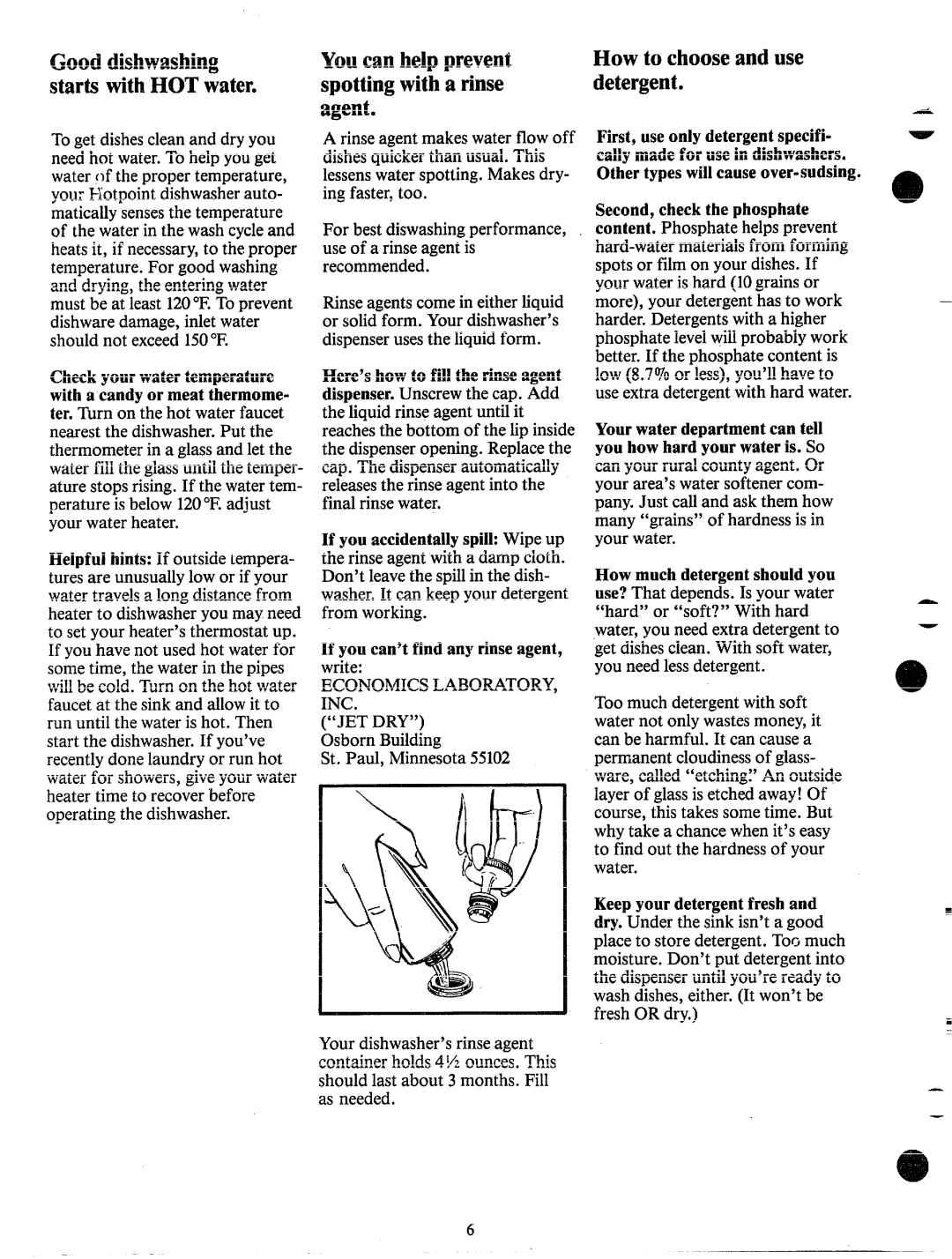HDA795 specifications
The Hotpoint HDA795 is a top-of-the-line dishwasher designed for those who value both efficiency and performance in their kitchen appliances. This modern unit is not just about cleaning dishes; it embodies a suite of innovative technologies that enhance the user experience while delivering exceptional results.One of the standout features of the Hotpoint HDA795 is its advanced cleaning system. With multiple wash cycles and options, this dishwasher can tackle everything from delicate china to heavily soiled cookware. The heavy-duty cycle is particularly effective for tough, baked-on messes, ensuring that your dishes come out spotless every time.
The HDA795 boasts an impressive energy efficiency rating, thanks to its eco-friendly design and performance. It utilizes less water and energy without compromising on cleaning power. This makes it an environmentally conscious choice for households looking to reduce their ecological footprint while enjoying superior cleaning capabilities.
Another notable technology featured in the Hotpoint HDA795 is its Quiet Package, which significantly reduces operating noise. This is a particularly beneficial feature for open-concept living spaces or homes where peace and quiet are a priority. With a low decibel level, users can run the dishwasher without disturbing family gatherings or late-night activities.
The dishwasher also features a flexible loading system, which includes adjustable racks and fold-down tines. This allows users to customize the interior space according to their specific load requirements, accommodating everything from large pots to tall glasses with ease. The third rack serves as an additional layer for organizing smaller items like utensils, ensuring maximum efficiency in every wash.
In terms of user interface, the Hotpoint HDA795 is designed with ease of use in mind. An intuitive control panel makes selecting wash cycles and options straightforward, while the indicator lights keep users informed about the current wash status. Moreover, the stainless-steel finish of the appliance not only contributes to its sleek appearance but also enhances durability.
Safety is also a priority in the design of the HDA795. The dishwasher comes equipped with child lock features to prevent accidental openings and ensure household safety, especially in homes with young children.
Overall, the Hotpoint HDA795 combines cutting-edge technology, eco-friendliness, and user-friendly features, making it an excellent choice for homeowners seeking an efficient, reliable dishwasher that meets modern culinary demands. It exemplifies quality craftsmanship and innovation, ensuring that your dishes are cleaned thoroughly and effortlessly.

